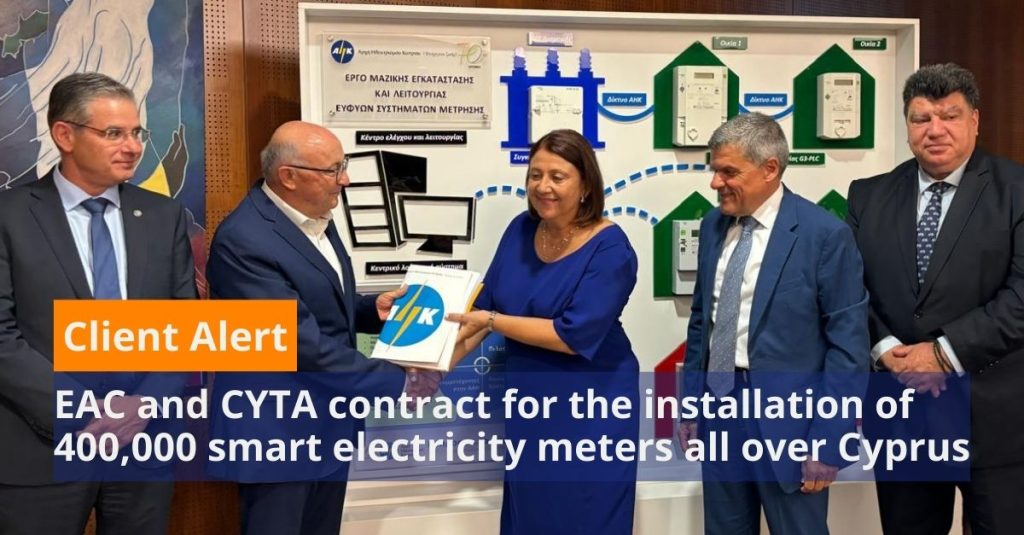Οι νέοι Κανονισμοί Πολιτικής Δικονομίας έχουν ήδη προκαλέσει αισθητή μείωση στην καταχώριση νέων αγωγών στα Δικαστήρια. Αυτό επειδή με τους νέους Κανονισμούς η προεργασία που απαιτείται να γίνει από τον διάδικο και τον δικηγόρο του, είτε για να εγερθεί μια αγωγή είτε για να καταχωριστεί μια υπεράσπιση, είναι περισσότερη από ότι ήταν με τους παλαιούς θεσμούς. Γενικότερα, με τους νέους Κανονισμούς, όλες οι δικονομικές διαδικασίες που συνθέτουν μια δικαστική διαδικασία απαιτούν περισσότερες ανθρωποώρες για να εκτελεστούν αλλά και πρέπει να γίνουν σε πολύ στενότερα χρονικά περιθώρια. Εκτιμώ ότι σύντομα θα δούμε αύξηση του κόστους παροχής δικηγορικών υπηρεσιών που αφορούν εκπροσώπηση στο Δικαστήριο αλλά αυτό είναι ένα άλλο, συνδεδεμένο μεν, ζήτημα.
Ένεκα των πιο πάνω ριζικών αλλαγών, τα Δικαστήρια και η πολιτεία αναμένουν και προσδοκούν ότι οι Νέοι Κανονισμοί Πολιτικής Δικονομίας θα προκαλέσουν αύξηση στην εξωδικαστηριακή επίλυση διαφορών και εννοείται ότι η κύρια μέθοδος εξωδικαστηριακής επίλυσης διαφορών στην Κύπρο είναι η Διαιτησία.
Συνεπώς αποφάσισα να γράψω αυτό το άρθρο για να θέσω ορισμένα πράγματα στην ορθή τους βάση και διάσταση, ενόψει αυτής της αύξησης που αναμένεται στις Διαιτησίες στην Κύπρο, έτσι ώστε ο αναγνώστης να μπορεί να αποφασίσει εάν επιθυμεί να χρησιμοποιήσει τα Δικαστήρια ή την Διαιτησία για να επιλύσει την διαφορά του.
Εάν ο αναγνώστης έχει ήδη υπογράψει σύμβαση που περιέχει ρήτρα διαιτησίας, πάλι θα μπορεί να ενημερωθεί ως προς το πως να διαχειριστεί την διαιτησία έτσι ώστε να αυξήσει τις πιθανότητες η όλη διαδικασία να στεφθεί με επιτυχία.
Αρχίζω με το να πω ότι υπάρχουν αρκετές παρανοήσεις σε σχέση με την Διαιτησία και αυτό παρασύρει διαδίκους σε λανθασμένες αποφάσεις. Οι λανθασμένες αυτές αποφάσεις στο τέλος καταλήγουν να προκαλούν αυξημένο κόστος, σπατάλη χρόνου, ταλαιπωρία και εκνευρισμό στους διαδίκους.
Συγκριτικό Κόστος Διαιτησίας vs Δικαστηρίου
Η πρώτη παρανόηση είναι ότι η Διαιτησία είναι πιο οικονομική από πλευράς εξόδων από το Δικαστήριο. Αυτό ουσιαστικά δεν αληθεύει. Η Διαιτησία δεν είναι πιο οικονομική από το Δικαστήριο και εξηγώ. Είτε στο Δικαστήριο είτε στην Διαιτησία ο διάδικος θα εκπροσωπηθεί από Δικηγόρο, άρα αυτό το κόστος είναι σταθερό και στις δύο περιπτώσεις. Επίσης στην Διαιτησία όπως και στο Δικαστήριο η μαρτυρία είναι της ίδιας έκτασης, άλλα και οι ανθρωποώρες που θα δαπανήσει ο διάδικος για να προετοιμαστεί για να μαρτυρήσει πάλι είναι οι ίδιες.
Όμως στην Διαιτησία, οι διάδικοι θα πρέπει να πληρώσουν τον Διαιτητή ή τους Διαιτητές τους και σε ορισμένες περιπτώσεις θα πρέπει να πληρώσουν και ορισμένα άλλα κόστη όπως τους χώρους συνεδριάσεων και κόστη της Διαιτησίας. Στο Δικαστήριο πληρώνεται ένα αρχικό ποσό με την καταχώριση της αγωγής και μετέπειτα τα κόστη υπό μορφή χαρτοσήμων είναι πολύ χαμηλά. Ούτε και πληρώνεις τον Δικαστή με την ώρα και ούτε και πληρώνεις τον Δικαστή παραπάνω αναλόγως των επίδικων θεμάτων ή την έκταση των δικασίμων ή το χρόνο που θα του πάρει να συντάξει την οποιαδήποτε απόφαση. Στην Διαιτησία όμως αυτά τα επιπλέον κόστη υπάρχουν και αναλόγως της περίπτωσης μπορεί να αυξηθούν δραματικά. Επίσης, στην περίπτωση Δικαστηρίου η αίθουσα διεξαγωγής της δίκης είναι δωρεάν ενώ στην Διαιτησία υπάρχουν (κάποτε) το κόστος του χώρου της Διαιτησίας όπως και το κόστος της στενογράφου κτλ. που πληρώνονται από τους διάδικους αναλόγως της μεταξύ τους συμφωνίας και/ή του αποτελέσματος της Διαιτησίας.
Χρόνος Αποπεράτωσης
Δεύτερη άποψη που επικρατεί, και η οποία ελλοχεύει κινδύνους, είναι ότι η Διαιτησία είναι πιο γρήγορη από το Δικαστήριο. Για να κρίνουμε το εάν η Διαιτησία είναι πιο γρήγορη από το Δικαστήριο πρέπει να γνωρίζουμε από που προέκυψε η άποψη αυτή. Η άποψη αυτή προέκυψε από το ότι οι αγωγές ήταν τόσες πολλές που προηγουμένως χρειαζόταν 5 – 6 χρόνια μέχρι να έρθει η σειρά της αγωγής για ακρόαση και σύνολο 6 – 8 χρόνια μέχρι να εκδοθεί απόφαση. Ειδικότερα, αγωγές του Επαρχιακού Δικαστηρίου Λευκωσίας που ήταν και το πιο βαρυφορτωμένο όντως έπαιρναν τόσο καιρό και πολλές φορές ακόμη περισσότερο. Σε άλλα Επαρχιακά Δικαστήρια, όπως αυτό της Πάφου ή της Αμμοχώστου, η περίοδος κυμαίνετο στα τουλάχιστο 4 – 5 έτη. Δηλαδή ήταν ο όγκος των αγωγών που κατέστησε την Διαιτησία πιο γρήγορη στα μάτια των διαδίκων.
Αυτό όμως με τον χρόνο, δηλαδή σε βάθος 4 – 6 ετών, ευελπιστούμε ότι θα αλλάξει επειδή οι αγωγές, ένεκα των Νέων Κανονισμών Πολιτικής Δικονομίας (τουλάχιστο αυτό ήταν το όλο σκεπτικό πίσω από την μεταρρύθμιση), θα μειωθούν και άρα θα δίδεται ημερομηνία ακρόασης πολύ πιο γρήγορα. Υπάρχουν ορισμένες πολύ αισιόδοξες θα έλεγα προβλέψεις για εκκίνηση της ακρόασης εντός 2 ετών. Δεν νομίζω να κινηθεί τόσο γοργά η διαδικασία αλλά θεωρώ ότι ένας χρόνος εκδίκασης εντός 2.5 – 3.5 ετών από την καταχώριση θα είναι εφικτός στα επόμενα 4 – 6 χρόνια. Αυτός είναι πάλι αρκετός καιρός αλλά είναι πολύ πιο λίγος χρόνος από ότι χρειαζόταν προηγουμένως.
Υπάρχει αλήθεια στην άποψη ότι η Διαιτησία είναι πιο γρήγορη από το Δικαστήριο αλλά αυτό ισχύει μόνο εάν η Διαιτησία όντως κινείται με την δέουσα σπουδή. Μια Διαιτησία όπου ο Διαιτητής δεν «κουμαντάρει» επαρκώς την διαδικασία ή τους διαδίκους ή όπου Διαιτητής, δικηγόροι και διάδικοι δεν έχουν την δυνατότητα να δικάσουν συνεχόμενα (ή δεν επιθυμούν για τον ένα ή τον άλλο λόγο να την προχωρήσουν γρήγορα) μπορεί να πάρει αρκετά πιο πολλά έτη παρά ότι χρειάζεται και δεν είναι καθόλου δύσκολο να φθάσει τα 3 – 4 έτη.
Επίσης, το εάν μια Διαιτησία θα ολοκληρωθεί σε ένα, δύο, τρία ή τέσσερα και βάλε έτη είναι κάτι που εξαρτάτε όχι από τον θεσμό της Διαιτησίας αλλά κυρίως από τον Διαιτητή, τους δικηγόρους που την χειρίζονται αλλά και πιο σημαντικά, από τους ίδιους του διαδίκους. Η οποιαδήποτε καθυστέρηση, αναλόγως της περίπτωσης, είναι από τους προαναφερόμενους τρεις συμμετέχοντες που θα προκληθεί.
Εννοείται ότι σε ορισμένες περιπτώσεις υπάρχουν πολύπλοκες διαιτησίες με δικόγραφα που απαριθμούν εκατοντάδες σελίδες και εκατοντάδες τεκμήρια. Αυτές όντως είναι δικαιολογημένο να διαρκέσουν 2 – 4 έτη. Το πρόβλημα είναι όταν διαιτησίες οι οποίες δεν είναι ιδιαίτερα πολύπλοκες καταλήγουν να διαρκούν το ίδιο με τις πολύπλοκες.
Τελεσιδικία της Διαδικασίας
Τρίτη παρανόηση είναι ότι η απόφαση της Διαιτησίας είναι δεσμευτική για τα μέρη. Νομικά η απόφαση της Διαιτησίας είναι όντως δεσμευτική για τα μέρη αλλά αυτό δεν σημαίνει ότι ο διάδικος που έχασε στην Διαιτησία δεν έχει δικαίωμα να ενστεί στην εγγραφή της.
Η έκδοση διαιτητικής απόφασης δεν αποτελεί τελεσίδικο μέτρο. Σε αντίθεση με απόφαση δικαστηρίου ή τελεσιδικία στην περίπτωση Διαιτητικής απόφασης επέρχετε με την αναγνώριση και εγγραφή της σε αρμόδιο Δικαστήριο. Συνεπώς ένας επιτυχών διάδικος σε Διαιτησία, εάν ο αποτυχών διάδικος δεν σεβαστεί την απόφαση του Διαιτητή, θα αναγκαστεί να αιτηθεί στο Δικαστήριο για να την εγγράψει για μπορέσει να την εκτελέσει. Επίσης, ο αποτυχών διάδικος στην Διαιτησία θα έχει αναφαίρετο δικαίωμα να καταχωρίσει ένσταση στην αίτηση για εγγραφή και να αιτηθεί την ακύρωση της απόφασης του Διαιτητή για διάφορους νομικούς και πραγματικούς λόγους που επιτρέπει η νομολογία.
Συνεπώς θα έλεγα ότι η ορθή διάσταση του όλου πράγματος είναι ότι ναι μεν η απόφαση του Διαιτητή είναι δεσμευτική για τα μέρη στο ότι δεν μπορούν να την εφεσιβάλουν στον ίδιο ή σε άλλο Διαιτητή αλλά δεν είναι άμεσα εκτελέσιμη όπως είναι η απόφαση του Δικαστηρίου. Δεν είναι λίγες οι περιπτώσεις όπου το Δικαστήριο έχει ακυρώσει αποφάσεις Διαιτητών με αποτέλεσμα η νίκη στην Διαιτησία να ήταν άνευ σημασίας. Άρα μέσω του Δικαστηρίου απευθείας, αποφεύγεται αυτός ο κίνδυνος της μη εγγραφής της απόφασης του Διαιτητή. Αυτό το αναφέρω επειδή πολλή διάδικοι θεωρούν ότι ήρθαν στο τέλος του δρόμου με την έκδοση της απόφασης του Διαιτητή υπέρ τους και μετά αντιλαμβάνονται ότι κέρδισαν την πιο κύρια μάχη αλλά υπάρχουν και άλλες μάχες (και άλλα έξοδα) μέχρι να τελειώσει ο «πόλεμος».
Πρόσθετες Οικονομικές Πτυχές
Τέταρτο ζήτημα που οπωσδήποτε χρίζει αναφοράς και επισήμανσης είναι το γεγονός ότι η Διαιτησία εμπεριέχει ένα κίνδυνο που αφορά την πληρωμή του Διαιτητή. Ο διάδικος ο οποίος επιθυμεί να προκαλέσει καθυστερήσει ή να αποφύγει την πληρωμή ή που ουσιαστικά δεν θέλει να λυθεί η διαφορά επειδή θεωρεί ότι τον συμφέρει να παραμείνουν τα πράγματα όπως έχουν έχει την ευχέρεια να λειτουργήσει ανέντιμα και να μην πληρώνει το δικό του μερίδιο των εξόδων του Διαιτητή καθυστερώντας έτσι την διαδικασία.
Δεν είναι λίγες φορές που ο Διαιτητής ετοιμάζει την απόφαση του και ζητά από τους διαδίκους να πληρώσουν το τιμολόγιο του για τους την αποστείλει και ο διάδικος ο οποίος θεωρεί ότι θα χάσει ή ο οποίος δεν του συμφέρει η έκδοση της απόφασης αρνείται να καταβάλει το δικό του μισό των εξόδων. Το αποτέλεσμα είναι ότι πληρώνει όλο το κόστος του Διαιτητή ο διάδικος που επιθυμεί να εκδοθεί η απόφαση και μετά τρέχει για να εγγράψει την απόφαση του Διαιτητή στο Δικαστήριο έτσι ώστε εισπράξει αυτό το κόστος μαζί με το ποσό που επιδίκασε υπέρ του ο Διαιτητής. Και στο Δικαστήριο μπορεί να δημιουργήσει κανείς καθυστέρηση αλλά τουλάχιστο δεν επιβαρύνεται ή άλλη πλευρά με το κόστος έκδοσης της απόφασης.
Υπάρχουν και ορισμένες περιπτώσεις όπου διάδικος πλήρωσε όλο το κόστος του Διαιτητή και μετά απέτυχε στην εγγραφή της απόφασης (για τον ένα ή τον άλλο λόγο) και άρα στην ουσία πλήρωσε για μια απόφαση παντελώς άχρηστη.
Ο Διαιτητής οφείλει να μειώσει αυτό το κίνδυνο στο ελάχιστο με το να εκδίδει συχνά ενδιάμεσα τιμολόγια έτσι ώστε το τελευταίο τιμολόγιο, αυτό της έκδοσης της απόφασης, να μην είναι φορτωμένο με προηγούμενη ατιμολόγητη εργασία. Αυτό όμως δεν το έχουν πάντα κατά νου όλοι.
Η σημασία των ορθών επιλογών και αποφάσεων
Τα προαναφερόμενα σκοπό έχουν την παράθεση της ορθής διάστασης και δεν διαφοροποιούν και δεν αλλοιώνουν το ότι η Διαιτησία ήταν, και παραμένει, εξαιρετική μέθοδος εξωδικαστηριακής επίλυσης διαφορών, για τις κατάλληλες όμως περιπτώσεις και νοουμένου ότι παρθεί μια σειρά ορθών και σοφών αποφάσεων, οι οποίες θα θέσουν τα θεμέλια για μια γρήγορη διαδικασία διαιτησίας η οποία με την σειρά της θα καταλήξει στην έκδοση μιας εγγράψιμης απόφασης.
Η πρώτη απόφαση που πρέπει να παρθεί, και ίσως η πιο σημαντική, είναι ως προς το πρόσωπο του Διαιτητή.
Ο Διαιτητής πρωτίστως οφείλει να έχει χρόνο να φέρει την Διαιτησία εις πέρας γρήγορα. Ένας Διαιτητής μπορεί να έχει χρόνο σε μια περίοδο και σε άλλη να μην έχει επειδή ανάλαβε και άλλες εργασίες ή επειδή είναι επαγγελματίας (δικηγόρος, αρχιτέκτονας, πολιτικός μηχανικός, επιμετρητής ποσοτήτων κλπ.) και έχει και άλλες επαγγελματικές υποχρεώσεις. Άρα οι διάδικοι θα πρέπει εξ αρχής, πριν την επιλογή του Διαιτητή, να κάνουν μια συζήτηση μαζί του για να διαπιστώσουν ότι την συγκεκριμένη περίοδο έχει τον χρόνο να προωθήσει την διαδικασία με την δέουσα σπουδή.
Η δεύτερη απόφαση που πρέπει να παρθεί και η οποία πάλι αφορά το πρόσωπο του Διαιτητή είναι το κατά πόσο ο συγκεκριμένος Διαιτητής είναι ο πιο κατάλληλος για να επιλύσει την συγκεκριμένη διαφορά και να καταλήξει σε μια εγγράψιμη απόφαση.
Παραδείγματος χάριν, μπορεί η διαφορά να αφορά ένα οικοδομικό συμβόλαιο και τα μέρη να συγκλίνουν στην επιλογή ενός Διαιτητή ο οποίος είναι επαγγελματίας στον κατασκευαστικό τομέα. Όμως εάν πέραν των τεχνικών ζητημάτων η διαφορά εμπεριέχει και διαφωνία ως προς σωρεία νομικών ζητημάτων τότε μπορεί ο εν λόγω επαγγελματίας του κατασκευαστικού τομέα να μην είναι ο πιο κατάλληλος για να την επιλύσει. Ένας αρχιτέκτονας σίγουρα μπορεί να κρίνει καλύτερα από ένα δικηγόρο εάν κάτι συνιστά κακοτεχνία με βάση τα σχέδια ή εάν η επιλογή ενός υλικού ήταν ή δεν ήταν η κατάλληλη αλλά σίγουρα θα δυσκολευτεί να αποφασίσει νομικά ζητήματα όπως εάν το τάδε τεκμήριο αποτελεί αποδεκτή μαρτυρία ή την νομική ερμηνεία ενός συγκεκριμένου όρου ή τις νομικές προεκτάσεις μιας σειράς γεγονότων. Πάλι αυτός ο επαγγελματίας θα αποφασίσει τα νομικά αυτά ζητήματα αλλά θα του πάρει πολύ περισσότερο χρόνο (τον οποίο βεβαίως θα χρεώσει) από αυτό που θα έπαιρνε σε ένα δικηγόρο και επιπλέον είναι αυξημένες οι πιθανότητες να προβεί σε κάποιο νομικό σφάλμα το οποίο να επηρεάσει το κύρος της τελικής απόφασης.
Το ίδιο όμως μπορεί να λεχθεί και για ένα δικηγόρο ο οποίος αναλαμβάνει μια διαιτησία η οποία ναι μεν περιέχει διαφωνία σε μερικά νομικά ζητήματα αλλά η μεγάλη διαφωνία έγκειται ως προς τα τεχνικά ζητήματα. Βεβαίως και ο δικηγόρος μπορεί να αποφασίσει το και τεχνικό κομμάτι αφού ακούσει την μαρτυρία των διαδίκων και των εμπειρογνωμόνων τους αλλά ενδεχομένως να ήταν καλύτερα οι διάδικοι να είχαν αποταθεί σε επαγγελματία του τομέα της διαφοράς αφού η διαφορά τους ήταν παραπάνω επί τεχνικών σημείων παρά επί νομικών.
Για να διασφαλίσουν μια γρήγορη διαδικασία καθώς και την έκδοση μιας εγγράψιμης απόφασης οι διάδικοι οφείλουν να αναλογιστούν την ίδια την φύση της διαφοράς τους. Με το να αποταθούν σε δικηγόρο μεγιστοποιούνται οι πιθανότητες η απόφαση να είναι εν τέλη εγγράψιμη και να μην ακυρωθεί ένεκα κάποιου νομικού παραστρατήματος. Συνεπώς οι διάδικοι θα πρέπει να αποφασίσουν εάν θα αρκεστούν στο να πείσουν τον Διαιτητή που είναι νομικός επί τεχνικών ζητημάτων μέσω της παράθεσης της μαρτυρίας τους μόνο ή εάν θα ορίσουν και ένα τεχνικό τον οποίο ο Διαιτητής θα μπορεί να συμβουλεύεται για να τον βοηθήσει να αποφασίσει περίπλοκα τεχνικά ζητήματα, μαζί με τα νομικά.
Το αντίστροφο μπορεί και να γίνει σε περίπτωση που οι διάδικοι κρίνουν ότι τα τεχνικά ζητήματα είναι πιο καίρια ή πιο πολλά από τα νομικά. Μπορούν είτε να αναλάβουν το ρίσκο ο καθένας να πείσει τον Διαιτητή ο οποίος είναι τεχνικός (και όχι νομικός) επί των νομικών ζητημάτων ή μπορούν να ελαχιστοποιήσουν το ρίσκο μιας λανθασμένης από νομικής άποψης απόφασης με να συμφωνήσουν να ορίσουν ένα δικηγόρο τον οποίο ο Διαιτητής θα συμβουλεύεται για να τον βοηθήσει να αποφασίσει περίπλοκα νομικά ζητήματα.
Αυτά τα ρίσκα μειώνονται σε μεγάλο βαθμό όπου το επίδικο ποσό είναι αρκετά μεγάλο και άρα δικαιολογεί την παραπομπή της διαφοράς σε τρείς διαιτητές, δηλαδή και τεχνικούς και νομικούς μαζί (εάν είναι τέτοια η φύση της διαφοράς).
Δεν πρέπει να ξεχνούμε ότι η επιλογή του ποιος ή ποιοι θα αποφασίσουν την διαφορά είναι ένα από τα κύρια προτερήματα της Διαιτησίας καθότι στο Δικαστήριο δεν μπορείς να διαλέξεις δικαστή. Η ουσία το όλου πράγματος όμως έγκειται στο ότι οι διάδικοι οφείλουν να αναγνωρίσουν την φύση της διαφοράς τους και να λάβουν τα κατάλληλα μέτρα και/ή να πάρουν ορθές και λογικές αποφάσεις έτσι ώστε να μεγιστοποιήσουν τις πιθανότητες η διαδικασία να αρχίσει και να ολοκληρωθεί με την δέουσα σπουδή και να οδηγήσει στην έκδοση μιας ορθής, δίκαιης και πάνω από όλα εγγράψιμης διαιτητικής απόφασης.
Μετέπειτα, η επόμενη σημαντική απόφαση που πρέπει να λάβουν οι διάδικοι είναι ποιος δικηγόρος θα τους εκπροσωπήσει στην Διαιτησία. Αυτό έχει να κάνει τόσο με τις γνώσεις του δικηγόρου σε σχέση με την Διαιτησία και την εγγραφή και ακύρωση διαιτητικών αποφάσεων αλλά και με τον χρόνο που έχει να διαθέσει ο εν λόγω δικηγόρος για να δικάσει την Διαιτησία.
Η Διαιτησία επιτρέπει κάτι το οποίο δεν επιτρέπει το βαρυφορτωμένο πρόγραμμα των Δικαστηρίων, το οποίο δεν είναι άλλο από την συνεχιζόμενη εκδίκαση. Αυτός είναι και ένας από τους λόγους που μπορεί να είναι πολύ πιο γρήγορη από το Δικαστήριο. Συνεπώς εάν τα μέρη επέλεξαν ένα Διαιτητή ο οποίος έχει τον απαιτούμενο χρόνο και μετά επέλεξαν και δικηγόρους οι οποίοι μπορούν να δικάσουν συνεχόμενα, παραδείγματος χάριν από Δευτέρα μέχρι Παρασκευή ή για δύο οι τρείς συνεχόμενες εβδομάδες (εάν η διαφορά το απαιτεί) τότε η Διαιτησία θα κινηθεί πολύ γρήγορα και θα λήξει αισίως.
Άρα είναι εμφανές ότι οι διάδικοι έχουν πολλά να σκεφτούν και πολλά να αποφασίσουν, τα οποία θα παίξουν σημαντικό ρόλο και θα κρίνουν το κατά πόσο η διαδικασία διαιτησίας θα επιτελέσει τον σκοπό της.
Θεωρώ δόκιμο να δώσω ένα παράδειγμα μιας επιτυχούς διαδικασίας διαιτησίας. Πρόσφατα εκπροσωπήσαμε σε διαδικασία διαιτησίας ένα ημικρατικό οργανισμό. Αντίδικος ήταν μια μεγάλη εταιρεία η οποία ήταν στρατηγικός συνεργάτης του ημικρατικού αυτού οργανισμού.
Προέκυψε διαφορά στην μεταξύ τους σύμβαση και ακριβώς επειδή και οι δύο διάδικοι ήταν σοβαροί και ήθελαν να επιλύσουν την διαφορά τους για να μπορεί να συνεχίσει η επαγγελματική τους σχέση, επέλεξαν από μόνοι τους να χρησιμοποιήσουν τον θεσμό της Διαιτησίας. Η διαφορά ήταν ουσιαστικά νομική αλλά ο Διαιτητής θα έπρεπε να ακούσει και μαρτυρία από εμπειρογνώμονες.
Για Διαιτητή τους επέλεξαν ένα έγκριτο νομικό. Φυσικά, δεν τον επέλεξαν απλά και μόνο επειδή ήταν έγκριτος νομικός. Τον επέλεξαν και για τις νομικές του γνώσεις φυσικά, και για το έντιμο του χαρακτήρα του αλλά και ένεκα του ότι είχε το χρόνο να φέρει την διαιτησία εις πέρας με την δέουσα σπουδή. Το ύψος της διαφοράς ήταν τέτοιο που επέτρεπε την δαπάνη των μερικών εκατοντάδων ευρώ ανά ώρα για ένα Διαιτητή ο οποίος είχε το κύρος, τις γνώσεις, την ικανότητα αλλά και τον χρόνο να φέρει εις πέρας την διαδικασία Διαιτησίας.
Επιπλέον, η νομική κατάρτιση του Διαιτητή ήταν τέτοια που ελαχιστοποιούσε την πιθανότητα να πετύχει η οποιαδήποτε ένσταση στην μετέπειτα αίτηση για εγγραφή της απόφασης του. Για τους πιο πάνω λόγους οι διάδικοι αποτάθηκαν από κοινού στον συγκεκριμένο Διαιτητή. Δηλαδή οι διάδικοι ήδη από την αρχή, συνεργάστηκαν για την επιλογή του Διαιτητή τους χωρίς παρατράγουδα και αχρείαστη καθυστέρηση.
Επίσης, οι διάδικοι επέλεξαν να τους εκπροσωπήσουν δικηγόροι που ήταν στο ίδιο μήκος κύματος με τις επιθυμίες και με το συμφέρον των πελατών τους, με την κύρια επιθυμία να είναι να λυθεί η διαφορά δίκαια αλλά και γρήγορα έτσι ώστε να προχωρήσουν οι διάδικοι παρακάτω.
Οι διάδικοι, ακριβώς επειδή ήταν σοβαροί οργανισμοί, αναγνώριζαν ότι είναι πολύ καλύτερα για τους ίδιους να συνεργάζονται παρά να αντιδικούν. Ήθελαν συνεπώς η διαφορά τους να επιλυθεί το συντομότερο δυνατό. Για αυτό τον λόγο οι ακροάσεις της Διαιτησίας ήταν σχεδόν συνεχιζόμενες. Δηλαδή και ο Διαιτητής και οι δικηγόροι και οι μάρτυρες διέθεσαν συνεχόμενες ημερομηνίες από το πρόγραμμα τους για να δικαστεί η Διαιτησία γρήγορα (όπως προανέφερα, αυτή η δυνατότητα δεν υπάρχει στο Δικαστήριο το οποίο πολύ δύσκολα θα βρει τον χρόνο να δικάζει μόνο μια αγωγή για μια η δύο εβδομάδες συνεχόμενα).
Οι συνεχιζόμενες ακροάσεις έχουν και το επιπρόσθετο πλεονέκτημα του ότι ο μάρτυρας ετοιμάζεται μια φορά, μαρτυρεί και τελειώνει. Δεν χρειάζεται να προετοιμαστεί μια φορά για κυρίως εξέταση και μια ή δύο φορές για αντεξέταση σε κατοπινό διάστημα που στο Δικαστήριο μπορεί να είναι και μήνες μακριά. Αυτό εξοικονομεί του εκάστοτε διαδίκου και χρόνο και χρήμα αφού δεν χρειάζεται να προετοιμάσει τους μάρτυρες τους πάνω από μια φορά. Εάν οι ακροάσεις είναι η μια μακριά από την άλλη τότε θα πρέπει να ξαναγίνει η προεργασία προετοιμασίας του μάρτυρα επειδή δεν είναι εύκολο να θυμάται κανείς τι λέχθηκε πριν ένα ή δύο μήνες, ειδικά σε περίπλοκες υποθέσεις. Άρα με τις συνεχιζόμενες ακροάσεις οι διάδικοι γλυτώνουν ανθρωποώρες που στο τέλος της ημέρας αποτιμούνται σε χρόνο και χρήμα.
Επανερχόμενος στην εν λόγω Διαιτησία, η όλη διαδικασία διήρκησε λίγο περισσότερο από ένα χρόνο από την καταχώρηση των δικογράφων μέχρι και την έκδοση της απόφασης. Έδωσαν μαρτυρία διάφοροι μάρτυρες συμπεριλαμβανομένων και εμπειρογνωμόνων. Ο Διαιτητής εν τέλει δικαίωσε τον ημικρατικό οργανισμό. Ουσιαστικά οι εκεί διάδικοι έλυσαν την διαφορά τους σε λίγο πάνω από ένα έτος ενώ εάν καταχωρούσαν αγωγή στο Επαρχιακό Δικαστήριο Λευκωσίας η πιο γρήγορη ημερομηνία ακρόασης θα ήταν κάπου στο 2027 με 2028.
Οι πιο πάνω διάδικοι, ακριβώς επειδή αναγνώριζαν ότι μέσω της Διαιτησίας θα είχαν απόφαση πολύ πιο γρήγορα από ότι εάν έλυναν την διαφορά τους στο Δικαστήριο, και επειδή προβήκαν σε μια ορθή επιλογή διαιτητή έθεσαν τις βάσεις επιτυχίας της διαδικασίας μέσω των αρχικών τους επιλογών και αποφάσεων.
Άρα η θετική κατάληξη της διαδικασίας (δηλαδή χωρίς καθυστερήσεις, χωρίς αχρείαστη ταλαιπωρία και χωρίς σπατάλη χρόνου και χρήματος) δεν ήρθε κατά τύχη αλλά ως αποτέλεσμα μιας σειράς ορθών και ενημερωμένων αποφάσεων που έθεσαν τα ορθά θεμέλια για την όλη διαδικασία.
Ευελπιστώ ότι διαβάζοντας το άρθρο αυτό, το οποίο έχει ως σκοπό να θέσει ορισμένα πράγματα που αφορούν τον θεσμό της Διαιτησία στην ορθή τους βάση και διάσταση, ο αναγνώστης στο τέλος της ανάγνωσης, να είναι σε καλύτερη θέση από ότι ήταν προηγουμένως για να λάβει πιο ενημερωμένες, και άρα πιο ορθές αποφάσεις, για το πως να επιλύσει καλύτερα την διαφορά του, είτε αποφασίσει να την επιλύσει μέσω του θεσμού της Διαιτησίας είτε μέσω των Δικαστηρίων. .
Για περισσότερες πληροφορίες ή εάν έχετε ερωτήσεις που άπτονται του περιεχόμενου αυτού του άρθρου παρακαλώ επικοινωνήστε με τον κ. Θεόδουλο Δημητρίου.
Για να λαμβάνεται άμεση ενημέρωση για τα άρθρα των δικηγόρων του Ιωαννίδης Δημητρίου Δ.Ε.Π.Ε μπορείτε να ακολουθήσετε το Ιωαννίδης Δημητρίου Δ.Ε.Π.Ε στο LinkedIn.





